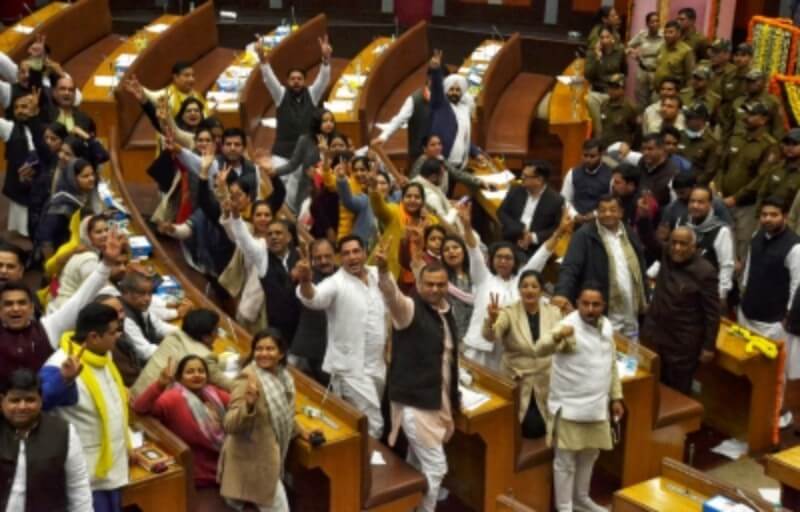New Delhi | In a boost to the AAP, the Supreme Court on Friday held that nominated members cannot vote in the election for the mayor of Municipal Corporation of Delhi (MCD).
A bench headed by Chief Justice of India D.Y. Chandrachud also ordered issuance of a notice convening the first meeting of the MCD in 24 hours and fixing the date of election for Mayor, Deputy Mayor, and members of standing committee.
The bench, also comprising Justices P.S. Narasimha and J.B. Pardiwala, also accepted AAP’s plea that after the Mayor gets elected, he/she would preside over the elections of Deputy Mayor and members of the Standing Committee, and not the pro-tem presiding officer.
The top court relied on Article 243R of the Constitution and Section 3(3) of Delhi Municipal Corporation Act, to hold that persons nominated by the administrator do not have the right to vote.
SPONSORED CONTENT
On February 13, the Supreme Court had observed that the nominated members cannot vote in the election for the Mayor. The office of the Delhi Lt Governor told the court that it would postpone the February 16 mayoral election to a date after February 17.
The top court had emphasised that nominated members cannot go for the election and the constitutional provision is very clear. Senior advocate Abhishek Manu Singhvi, representing the petitioner, had contended that Article 243 R of the Constitution makes it very clear. Additional Solicitor General Sanjay Jain, on his part, suggested that the election scheduled on February 16 can take place after February 17.
At this, Chief Justice Chandrachud asked Jain if "are you disputing the fact that nominated members should not vote, that is very well settled. That is a clear constitutional provision".
Senior advocate Maninder Singh said: "We should get an opportunity to convince the lordships that may be permissible...".
SPONSORED CONTENT
The Chief Justice asked, under which provision it is permissible? Singh said the provision under which they permit members to be part of Standing Committee and they become full-fledged members and urged the top court to grant some time to argue the matter.
Singhvi said there is a fallacy, corporation aldermen are excluded and, in the corporation, they are specifically excluded and in the Standing Committee they can vote, "and we are not on standing committee". Singh replied that is for the argument which has to be considered.
The bench said that they will be permitted in a committee is a different aspect of the matter. Singh said there are three committees which constitute the corporation itself.
The top court was hearing a petition filed by AAP leader Shelly Oberoi in connection with the election of mayor of the Municipal Corporation of Delhi.
SPONSORED CONTENT
Advocate Shadan Farasat, representing Oberoi, submitted that the petitioner is seeking two directions - nominated members shall not be allowed to vote and elections of Mayor, Deputy Mayor, and members of standing committee should be separate.
He said this is clear from the black letter of law and also relied on Section 76 of DMC Act to argue that the Mayor and Deputy Mayor have to preside over all meetings. It was argued that the simultaneous holding of elections for three posts (mayor, deputy mayor and standing committee members) is contrary to the DMC Act.
IANS
The English Post is on Telegram, click to join for regular news update
SPONSORED CONTENT




